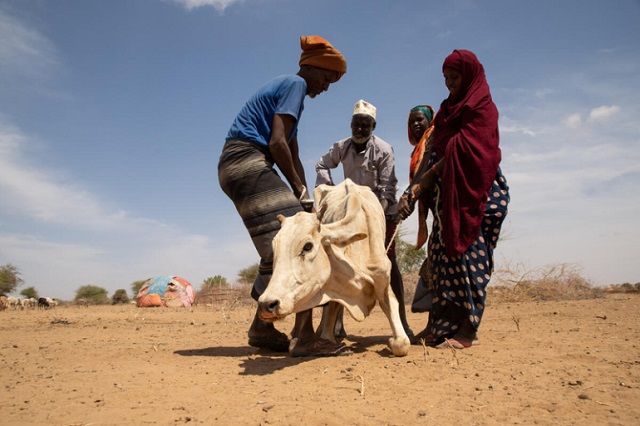
Nairobi, Kenya | Xinhua | Eight African ministers from the Horn of African region have vowed to develop a comprehensive roadmap to help boost food security amid a looming famine in some countries, a regional bloc said Tuesday.
“The failure of four consecutive rainfall seasons over the last three years has pushed communities in Arid and Semi-Arid (ASAL) areas, which are most vulnerable to recurrent droughts, over the brink,” the Intergovernmental Authority on Development (IGAD) said in a statement issued in Nairobi, the Kenyan capital. The eight IGAD member states are Ethiopia, Eritrea, Djibouti, Kenya, Somalia, Sudan, South Sudan and Uganda.
The ministers and heads of delegations from IGAD member states who ended their two-day meeting in Nairobi said the roadmap will prioritize scaling up famine prevention, strengthen food systems, enhance resilience, and improve cross-border trade within the region.
According to the bloc, about 50 million people in the Horn of African region are projected to face acute food insecurity by the end of 2022.
The ministers and heads of delegations from Djibouti, Ethiopia, Kenya, Somalia, South Sudan, Sudan, and Uganda and humanitarian partners met on Oct. 6-7 in Nairobi during a high-level regional meeting on national and regional efforts to address the persistent food crises in eastern Africa.
According to the IGAD, the region continues to grapple with the combined effects of climatic shocks, protracted political and resource-based conflicts, economic decline, escalated food and fuel prices, and inflation.
It said the region accounts for 22 percent of the global number of acutely food insecure people and 10 million children under five suffering from severe and acute malnutrition.
“This is the highest number of acutely food insecure populations recorded, with over 50 million people projected to face severe acute food insecurity by the end of this year,” the IGAD said.
In Ethiopia, Kenya, and Somalia, 23 million suffer from hunger every day and this number is expected to rise to 26 million early next year, it warned.
The IGAD also said 24 percent of the world’s 51 million internally displaced people who are found in the region, mainly in Ethiopia, Somalia, South Sudan, and Sudan, are also at risk. It warned that a potential fifth consecutive failed rainfall season looms over a region that is already weathering the catastrophic effects of persistent droughts, the worst in 40 years.
 The Independent Uganda: You get the Truth we Pay the Price
The Independent Uganda: You get the Truth we Pay the Price



